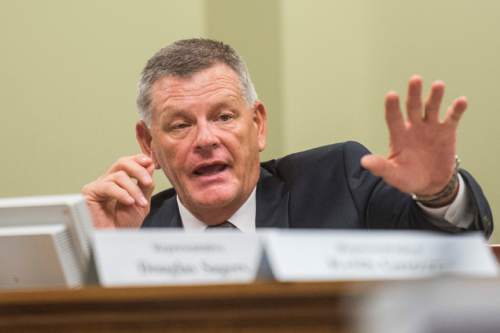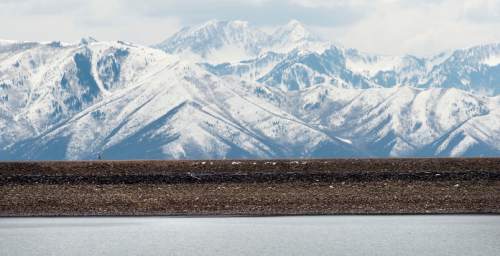This is an archived article that was published on sltrib.com in 2016, and information in the article may be outdated. It is provided only for personal research purposes and may not be reprinted.
Those who consume more water would pay higher rates under a bill passed Tuesday by the Utah Senate.
SB28, which passed 26-2, seeks to lower water usage statewide through "conservation pricing."
Its sponsor, Sen. Scott Jenkins, R-Plain City, said it would require rates to rise at different tiers of consumption. He said many of the larger urban water districts in the state already do that, but his bill would require it statewide.
He said because of water supply problems, Las Vegas has used such pricing for 25 years and "they have been able to continue to grow. A couple of those years, they built over 60,000 homes a year. And they have done it with no new water, just by conservation pricing."
Jenkins said as Utah expects a doubling of the population over the next three decades, the water "has to stretch as we continue to grow. Without these kinds of procedures, we will run out of water faster."
Sen. Howard Stephenson, R-Draper, said he had a personal experience recently with such pricing "where I wound up with an almost $1,000 water bill because I didn't know about this tiered rate."
But, he added, "The last quarter the same time of the year, I did it for $90 because I stayed within the amount of the tiers. My whole philosophy about water consumption has changed" and he is conserving more.
Stephenson said the change also could lead water districts to rely more on user fees and less on property tax subsidies, "so people are mindful of their consumption and can regulate it."
Jenkins said the bill requires notifying customers through billing about the rates for different tiers, including information about individual usage "so it lets them know if they are getting close to that level and there is something they need to do to cut it down."
Jenkins said the bill — which now goes to the House for consideration — does not mean that everyone's water rates will go up. "It could very well mean that their water rates are going to go down," he said, "if they are very conservative in how they use water."





